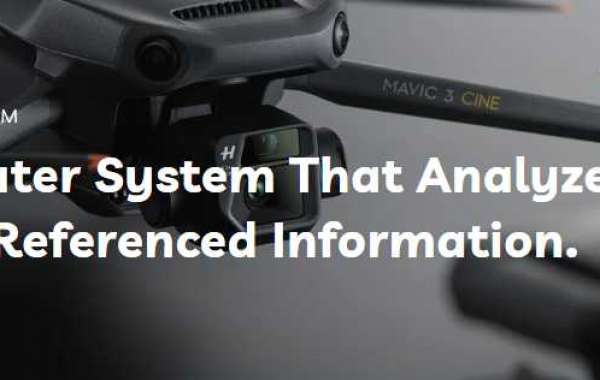In our modern world, the ability to navigate and understand geographic information is essential. Whether you're planning a road trip, managing natural resources, responding to disasters, or studying urban development, Geographic Information Systems (GIS) and mapping services play a crucial role in making sense of spatial data. In this blog, we will delve into the fascinating world of GIS and mapping services, exploring what they are, how they work, and the wide array of applications they have in our daily lives.
What is GIS?
GIS stands for Geographic Information System. At its core, GIS is a technology that enables us to capture, analyze, and visualize geographic data. These systems use specialized software to work with various types of geographical information, such as maps, satellite images, and spatial databases. The goal is to provide a deeper understanding of the world by connecting data to specific geographic locations.
How Does GIS Work?
Data Collection: The foundation of any GIS project is data. This data can be collected from various sources, including satellites, aerial surveys, GPS devices, and even surveys conducted on the ground. These data sources provide information on things like land use, elevation, climate, demographics, and more.
Data Integration: Once collected, data from different sources must be integrated into a single system. This process, known as data integration, ensures that all data is consistent and can be analyzed together.
Data Analysis: GIS allows for complex spatial analysis. This can include identifying patterns, trends, and relationships between different data sets. For example, GIS can help determine the best location for a new school based on factors like population density, transportation access, and land availability.
Data Visualization: One of the most powerful aspects of GIS is its ability to create visual representations of geographic data. Maps, charts, and graphs help people understand complex information quickly and intuitively.
Mapping Services
Mapping services are a subset of GIS that focus on providing maps and geographic data to users. They have become integral to our daily lives through services like Google Maps, Apple Maps, and various navigation apps. Here are some key aspects of mapping services:
Navigation: Mapping services are most commonly used for navigation. They provide real-time directions, traffic updates, and information on nearby businesses, making them indispensable for travelers.
Location-Based Services (LBS): Many mobile apps and services rely on mapping data to offer location-based features. This includes services like ride-sharing apps, food delivery, and augmented reality games like Pokémon GO.
Geolocation: Mapping services use GPS and other technologies to pinpoint a user's exact location. This information is then used to provide customized content and services based on the user's location.
Business Intelligence: Companies use mapping services to gain insights into customer behavior, market trends, and sales territories. This helps businesses make data-driven decisions about where to open new stores, target advertising, and allocate resources.
Applications of GIS and Mapping Services
The applications of GIS and mapping services are incredibly diverse:
Urban Planning: Planners use GIS to design cities and optimize infrastructure. It helps decide where to build roads, parks, and public facilities to improve the quality of life for residents.
Environmental Management: GIS is crucial for monitoring and managing natural resources, tracking deforestation, studying climate change, and predicting natural disasters like hurricanes and wildfires.
Healthcare: In healthcare, GIS helps track the spread of diseases, plan the location of healthcare facilities, and analyze health trends based on geographic regions.
Archaeology: Archaeologists use GIS to map and analyze excavation sites, helping to uncover ancient civilizations and study historical landscapes.
Transportation and Logistics: GIS plays a vital role in optimizing transportation networks, from routing delivery trucks efficiently to planning public transit systems.
Conclusion
Geographic Information Systems and mapping services have transformed the way we navigate and understand the world around us. They empower individuals, businesses, and governments to make informed decisions and solve complex problems by harnessing the power of spatial data. As technology continues to advance, we can expect even more exciting developments in the field of GIS and mapping services, further enhancing our ability to navigate and explore our world.
See more
VR virtual reality, Drone 360 View
virtual tour, 360 virtual tour, 360 degree virtual tour, virtual tour 3d
360 virtual tour, 360 degree virtual tour
advance virtual tour, 3d virtual tour, virtual tour 3d
3d rendering services, 3d architectural rendering services
3d product modeling services with VR, 3d modeling services with VR
gis geographic information system, gis services, gis mapping services
google maps street view, cost of google street view
Pre school 360 virtual tour, school virtual tour
School Virtual Tour | 360 Degree Virtual Tour Services
hospital 360 degree virtual tour, hospital virtual tour, Hospitals Virtual Tour
hotel virtual tour 360, virtual reality hotel tours, hotel room virtual tour, hotel 3d virtual tour
Banquet Halls 360 degree virtual tour , Banquet Hall Virtual Tour
Virtual Office Tour, Office Virtual Tour, corporate office virtual tour, 360 degree virtual tour
Showroom Virtual Tours, 360 degree 3d virtual tour services, Showroom Virtual Tour
Co-Working Virtual Tour, 360 degree virtual tour
3d animation for plot and map, 3d animation for plotting and mapping, 3d map animation
geographic information system example, GIS Services, geographic information system Services
3d virtual tour, virtual tour 3d, 360 degree virtual tour cost








